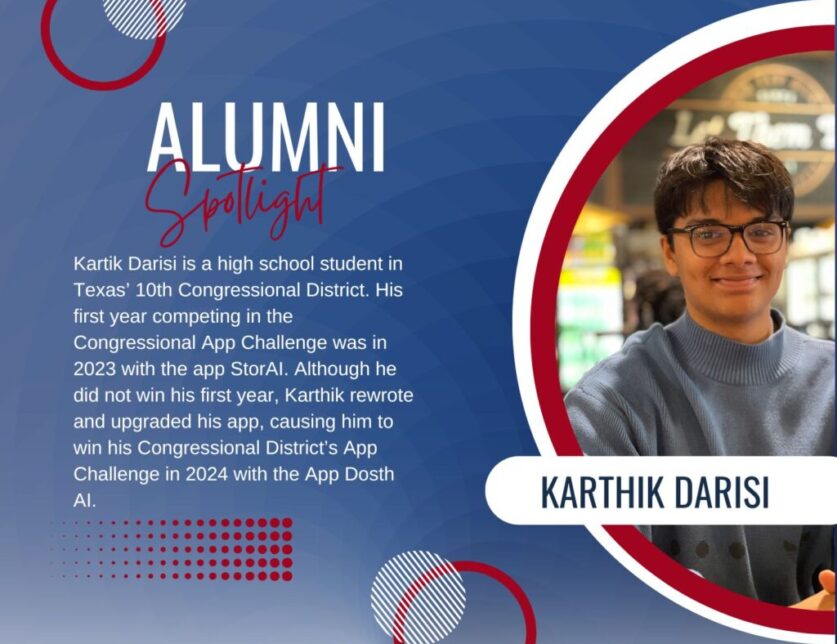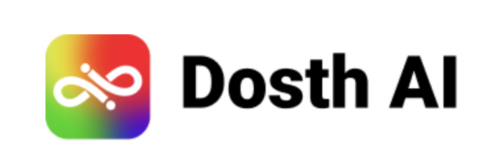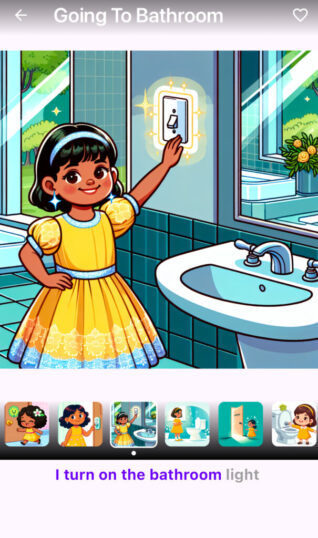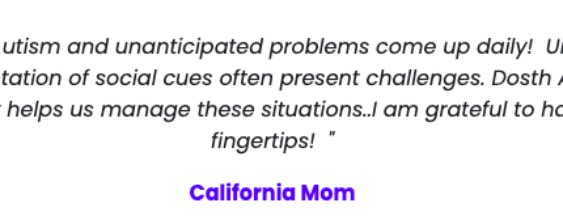Alumni Spotlight Interview: Karthik Darisi
The Alumni Spotlight Interview Series highlights the talented Alumni of the Congressional App Challenge, delving into their journeys, projects, and lasting impact of their participation in the App Challenge. These stories are an inspiration for future App developers who wish to use technology to make a difference in their communities.
Kartik Darisi is a high school student in Texas’ 10th Congressional District. His first year competing in the Congressional App Challenge was in 2023 with the app StorAI. Although he did not win his first year, Karthik rewrote and upgraded his app, causing him to win his Congressional District’s App Challenge in 2024 with the App Dosth AI.

Starting with a simple but impactful idea, Karthik used the Congressional App Challenge not just as a competition, but as an opportunity to create real-world solutions for challenges faced by marginalized communities. Through the development of Dosth AI, Karthik has demonstrated how technology can be used to foster inclusivity and support neurodivergent individuals.
We were lucky enough to sit down with Karthik to interview him on his inspirations and challenges he faced for the Congressional App Challenge, and the profound impact his work has had on the community.
CAC: When did you first compete in the Congressional App Challenge, and what inspired you to compete?
KD: Yeah, so my first competition was last year in the 2023 competition, and what really inspired me was just kind of having an avenue to be able to develop an idea that I’ve been thinking about for a very long time, and what I found very awesome about the Congressional App Challenge. Looking through a ton of these hackathons and development challenges, they’re kind of like one offs or you’re trying to develop like a website or like a simple application. But what was great about the App Challenge was I was able to fully flesh out an idea that I had into a workable, usable mobile app, and seeing this as an opportunity, I was motivated to, one, build on my idea, and to take it to the finish line to have something to submit.
CAC: How did you come up with the idea for your app?
KD: This all started in right before my freshman year of high school, and I just got selected to be a part of my varsity swim team, and I got my first team email from my coach asking for help for the Special Olympics, which is a program for people with autism or who are neurodivergent to be able to participate in athletics and really build a community through that. And as an incoming freshman, I wanted to build some rapport with my coach and start off on a good foot, so I signed up immediately. On my first day, I was just blown away by the amount of passion, hard work and just a completely different atmosphere that I’ve never seen. So I was working with a kid, and one day we were working on flip turns, and he was having a hard time hitting the wall with good effort and pushing off correctly. So I did what I did when I first learned how to flip turn, and I showed him a video of how a flip turn looks. And he watched the video one or two times, and he was thinking. He was like, “Okay, this is pretty cool” but he’s still, you know, he’s still trying to work through it. He saw the video a couple times, tried a couple times, and just did his best. Fast forward a week to our next practice. He comes up to me. He’s like, “Coach Karthik, I have something I have to I want to show you.” I’m like, “Alright, yeah, what is it?” And he gets in the water, and he does a beautiful flip turn first try. And I go up to him, like, “Hey, how did you do that last week? You know, you were kind of struggling. I thought we’re gonna have to work on this a little bit, but you nailed it. How did you do that?” And he was like, “Yeah, I went home and I kept watching that video, and I watched it every day, and I just kept on thinking about how to hit the wall correctly.”
And that just gave me an idea of, okay, these types of videos, some sort of visual situation, and showing them works in terms of facilitating a positive response in the action that they’re trying to portray, like imitation. So I started developing StorAI in November of 2023; I had very basic stories and visual renditions that I built with AI, and I kind of after that, after my first competition, I developed it even more. I came into contact with ABA therapists, which are applied behavioral therapists. I did a ton of research. I even wrote a paper about behavioral therapy and its integration with AI. And I fleshed out this app, I basically rewrote it from scratch with completely new elements, UI and features, and to create my overall goal of just allowing kids with neurodivergency and people with autism to be able to express themselves freely in social situations. So that’s what really inspired me to develop my app.
Dosth AI, the refined version of the initial Stor AI app, exists as an AI assistant that supports neurodivergent individuals by providing personalized and interactive resources. Through advanced AI technologies, Dosth AI creates tailored stories and task visuals to help users navigate real-life scenarios and daily activities with confidence.
The app functions primarily by preparing users for specific social, academic, and everyday situations. For example, it can generate visual guides that demonstrate proper eating habits, or create narratives that can help students understand and adapt to new social interactions such as meeting classmates or navigating the cafeteria at school. By bridging the gap between advanced AI and personalized learning, Dosth AI aims to empower neurodivergent individuals, promoting independence, reducing anxiety, and fostering a greater sense of inclusion in their communities.



CAC: What do you think has been the most memorable part of your experience competing so far in the Congressional App Challenge?
KD: Yeah. So my most memorable experience competing in the Congressional App Challenge has to be the research. And, yeah, just the research and talking to therapists. For my 2024 App, I talked to a lot of professionals on how to make this so good, but in my first iteration, I would just say, in general, holistically, it would be the research, and just kind of seeing it all pieced together and progress as I got closer and closer to my to the deadline was definitely the most rewarding thing for me, yeah.
CAC: How do you think that your app has made an impact on the community?
KD: Yeah, absolutely. So my main thing is getting them more used to social situations. But as I continue developing, I was able to get a lot of positive feedback on just general things that people would work on when I released my app. My first review was from a mother who said they had a kid who just moved to a different school and was expecting one of their friends to also move with them to this new school. Plans didn’t fall through quite correctly, and the kid was feeling just very anxious and stressed out that they have to come to this new school. And something unexpected happened, and their mom said that they used this app, and their kid was just watching stories on getting used to a new school. And eventually they were able to leave behind that stress and anxious feeling and really be able to prosper at their new school. So I mean, just to be able to help at least one person was just very rewarding for me, and I hope to continue my impact on the community in that way.
Karthik’s app has received widespread positive feedback from its users. In addition to the testimonial shared by Karthik, educators have praised the app for its utility in teaching and supporting neurodivergent individuals. Board Certified Behavioral Analysts have also applauded the app, highlighting its potential to change the face of ABA therapy by providing an innovative and effective tool for facilitating skill development and behavioral interventions.

CAC: How do you think that your experience in the Congressional App Challenge has inspired you to continue on this path, or just continue with STEM in general?
KD: Yeah, the Congressional App Challenge’s “helping you build process,” and emails on different resources I can use, was just perfect in helping me understand what goes into app development and beyond app development just trying to pursue, going into STEM going into further engineering projects for a project, further projects that relate to AI, which is what I’m slowly finding out to be my passion. I’m so glad that the Congressional App Challenge gives me an avenue to be able to pursue those interests.
CAC: How do you think that the Congressional App Challenge has shaped your academic and career goals since competing?
KD: So right before competing, I was mostly just into AI. That was when the AI boom was happening with ChatGPT, and everybody was using ChatGPT, and they just loved it. And I was using it and I was fascinated by it. But what the Congressional App Challenge gave me when I started participating was how, “okay, how can I expand, expand, expand on AI, and how to build it to this new level, to take it to the sci fi movies type of technology?” “How can I take AI and apply it to society in a way that I can make a positive impact on my community and on the world?” So finding applications of AI really became my career goal from then on and continuing.
CAC: How will you continue to pursue this path?
KD: Yeah, so, I’m still working on my app, DosthAI, and I’m trying to expand it, trying to market it right now to therapists. A group that I did not really expect to gain traction with are speech and language pathologists; after I implemented a speech feature into my app, they really saw great use in that. And just overall, I just want to build more applications using AI, especially in the medical field. I think that’s where my heart really lies in trying to find the synergy between both fields.
CAC: Looking back, what has changed the most for you since competing in the Congressional App Challenge for the first time?
KD: Yeah, I will definitely say my mindset. I think being motivated to develop an app is one, probably one of the most challenging things that I’ve ever had to do, and finding motivation to do something as daunting of a task as to design a UI, design elements that work perfectly, and then getting that to work in simulator and getting that to run. I was having a hard time finding motivation to do all that and go through all the steps, and I was just kind of clinging on to my idea of, “hey, I want to build this thing, I want to build this thing.” But to be able to have an avenue such as the Congressional App Challenge to be like, okay,this idea doesn’t mean anything without an end result or a product of it. So I think that’s definitely how the Congressional App Challenges changed my mindset on not just app development, but anything, any idea or anything I have in the future.
CAC: What advice would you give to future Congressional App Challenge participants who wish to make the positive impact on their community with their app?
KD: I know it might sound a little cliche, but don’t give up. I mean, if you have the drive, helping the community is extremely important, and to have an idea that can truly make a positive impact on your community is one in a million. So taking that to the next level and being motivated to do that, as it’s not just something for yourself, but something for the greater good of society. Staying motivated and not giving up on creating something for that is very important, and that’s definitely the advice I would give for pushing through and completing their app for the Congressional App Challenge as well.
CAC: Is there anything that we haven’t hit that you think is relevant, when talking about the impact that your app has had, and your experience with the Congressional App Challenge and developing this app?
KD: I will say that not being stressed out and wanting to throw something together is definitely not the move. The entire idea is to create something that is cohesive, so having an app that can truly do something is very important. That should definitely be your end goal. Instead of just trying to throw something together at the last second. Needs to be fully planned out. It needs to be that you need to have a lot of time, and you need to sink a lot of time into it in order to participate. I think that’s very big thing in order to do something like the Congressional App Challenge.
CAC: What was your biggest misconception between when you found out about the App Challenge for the first time, to now, having won your competition for this year in your District in Texas?
KD: My biggest misconception is, hey, what if I don’t win, or I have no chance of winning? There’s probably so many people who are developing apps like this. And I feel like that is a very bad mindset to go into it. You have to believe in yourself and in your idea and in your application and think about it like I’m developing a product for my community, regardless of what happens. I’ve done this, I’m launching it, I’ll be able to put it out, and somebody will be able to use this and better their lives with it. So not really thinking about it as a competition, but more thinking of it as something positive that you’re doing for the community is definitely how I would take the Congressional App Challenge.
Thank you, Karthik!
Karthik’s story exemplifies how a blend of empathy, innovation, and perseverance can lead to impactful outcomes. Competing in the Congressional App Challenge not only gave him the tools and confidence to pursue his ideas but also solidified his desire to continue pushing the boundaries of AI in service of others. His app, Dosth AI, has already touched lives, from helping children adapt to new environments to gaining recognition from professionals for its potential to revolutionize behavioral therapy. As he looks towards the figure, his commitment to developing meaningful AI applications in fields like medicine is a source of inspiration. We cannot wait to see how Karthik’s work continues to shape his community. In the meantime, Dosth AI is available on the IOS App Store and the Google Play Store.
